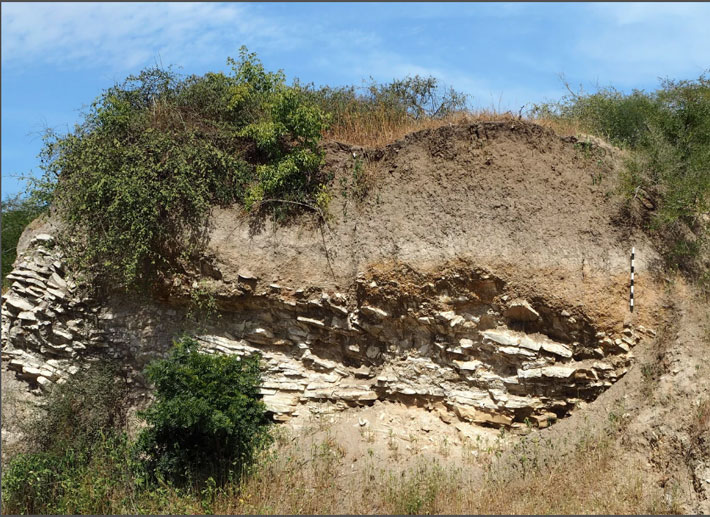 DAKAR, SENEGAL—According to a statement released by the Max Planck Society, an international team of researchers led by Khady Niang of the Université Cheikh Anta Diop de Dakar has studied toolkits recovered from Bargny 1, an archaeological site located near West Africa’s modern coastline. The toolkits at the site, which feature characteristic technologies of the Mesolithic, date back some 150,000 years. “The assemblage from Bargny 1 is closely comparable to those of a similar age from across the continent, and is the first site from West Africa dating to the Middle Pleistocene, prior to the onset of substantial technological regionalization elsewhere in Africa,” Niang explained. Team member Chris Kiahtipes of the University of South Florida added that microfossils recovered at the site indicate it was situated close to mangroves and brackish wetlands. The stability of this environment could account for the continued use of Mesolithic toolkits for approximately 140,000 years in West Africa, or tens of thousands of years after stone tool technologies changed in other regions of Africa, concluded team member James Blinkhorn of the Max Planck Institute for the Science of Human History. Read the original scholarly article about this research in Nature Ecology & Evolution. For more on the archaeology of West Africa, go to "Letter from Ghana: Life Outside the Castle."
DAKAR, SENEGAL—According to a statement released by the Max Planck Society, an international team of researchers led by Khady Niang of the Université Cheikh Anta Diop de Dakar has studied toolkits recovered from Bargny 1, an archaeological site located near West Africa’s modern coastline. The toolkits at the site, which feature characteristic technologies of the Mesolithic, date back some 150,000 years. “The assemblage from Bargny 1 is closely comparable to those of a similar age from across the continent, and is the first site from West Africa dating to the Middle Pleistocene, prior to the onset of substantial technological regionalization elsewhere in Africa,” Niang explained. Team member Chris Kiahtipes of the University of South Florida added that microfossils recovered at the site indicate it was situated close to mangroves and brackish wetlands. The stability of this environment could account for the continued use of Mesolithic toolkits for approximately 140,000 years in West Africa, or tens of thousands of years after stone tool technologies changed in other regions of Africa, concluded team member James Blinkhorn of the Max Planck Institute for the Science of Human History. Read the original scholarly article about this research in Nature Ecology & Evolution. For more on the archaeology of West Africa, go to "Letter from Ghana: Life Outside the Castle."
Stable Ecology Linked to Cultural Continuity in West Africa
